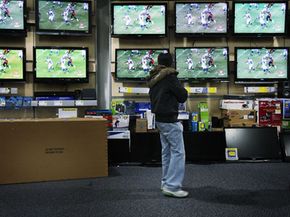It's become an indelible part of the ritual of purchasing electronics and other expensive items, and it usually comes at the end: the pitch -- and the pressure -- to purchase a product's extended warranty. A less-than-resolute shopper can be stuck in his or her tracks, panicked with indecision. What if the TV or the iPod or the stove you've just purchased actually breaks? Does it make more sense to replace it? Is it a good idea to buy insurance -- and peace of mind -- in case it goes haywire?
It makes sense: If you've just bought an expensive item, why not buy some additional insurance for it? However, some factors can make extended warranties at best a bad idea and at worst, a downright rip-off. Consider the length of time that they cover. Most items have a manufacturer's warranty that covers malfunctions and product flaws. These usually last for one year. An extended warranty can last a few years, but it begins when you purchase the item. So a three-year extended warranty really lasts just two years, since the first year is concurrent with the free manufacturer's warranty that came with the item.
Advertisement
Based on the law of averages, it makes more sense to turn down extended warranty offers. Statistically speaking, a product is likeliest to break either early on, within the free manufacturer's warranty, or years down the road, after an extended warranty has expired [source: Grant]. Looking at the profitability of extended warranties among consumer electronics retailers provides some insight as well. Retailers make as much as 40 to 80 percent profit from warranties [source: Bradford]. The reason they're so profitable is because the cost-conscious consumer always bets that his or her purchase will break. The consumer, unfortunately, rarely wins that bet. In other words, when it comes to extended warranties, the deck is stacked decidedly in the retailer's favor.
An extended warranty, like any type of insurance, is a form of gambling. But is it always a bad bet?
Advertisement



